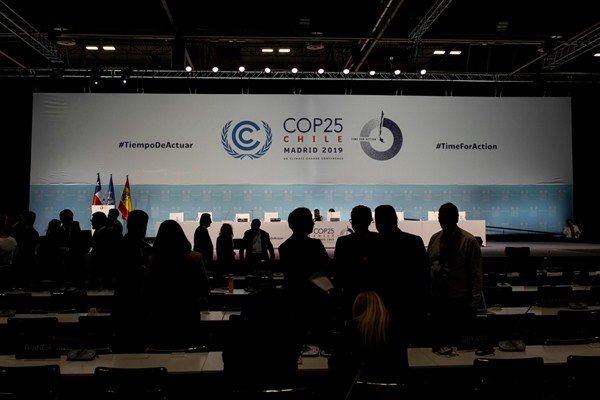The annual United Nations Climate Change Conference wrapped up Sunday in Madrid, after nearly two weeks of wrangling. Despite a two-day extension that made this the longest round of U.N. climate talks ever, the meeting was a massive failure. Instead of setting more ambitious targets for reducing greenhouse gas emissions, negotiators went home mostly empty-handed, having punted the most difficult climate-related questions to next year’s conference in Glasgow, Scotland.
“The international community lost an important opportunity to show increased ambition on mitigation, adaptation & finance to tackle the climate crisis,” U.N. Secretary-General Antonio Guterres declared in a tweet Sunday. The disappointing result was largely due to the unwillingness of the world’s largest economies to commit to deeper emissions cuts and hammer out a promised international carbon trading scheme. Meanwhile, warnings from climate scientists are only becoming more dire. According to the latest U.N. assessment, even if countries fulfill their current pledges to reduce emissions, the world is on track to warm by 3 degrees Celsius by the end of the century—a potentially catastrophic result.
The letdown in Madrid was especially palpable in light of the progress made in recent years, particularly the 2015 Paris Agreement on climate change. Widely hailed as the international system’s answer to the climate crisis, it established a framework for countries to submit their own greenhouse gas mitigation plans. The commitments are not binding and would not currently cut enough emissions to limit global warming to the deal’s target of less than 2 degrees Celsius, and preferably under 1.5 degrees. But the Paris Agreement accounted for these shortcomings with other mechanisms to make the math work, including a fund to finance adaptation and emissions reductions in less-developed countries and a promise that signatories ratchet up the ambition of their climate plans every five years.

